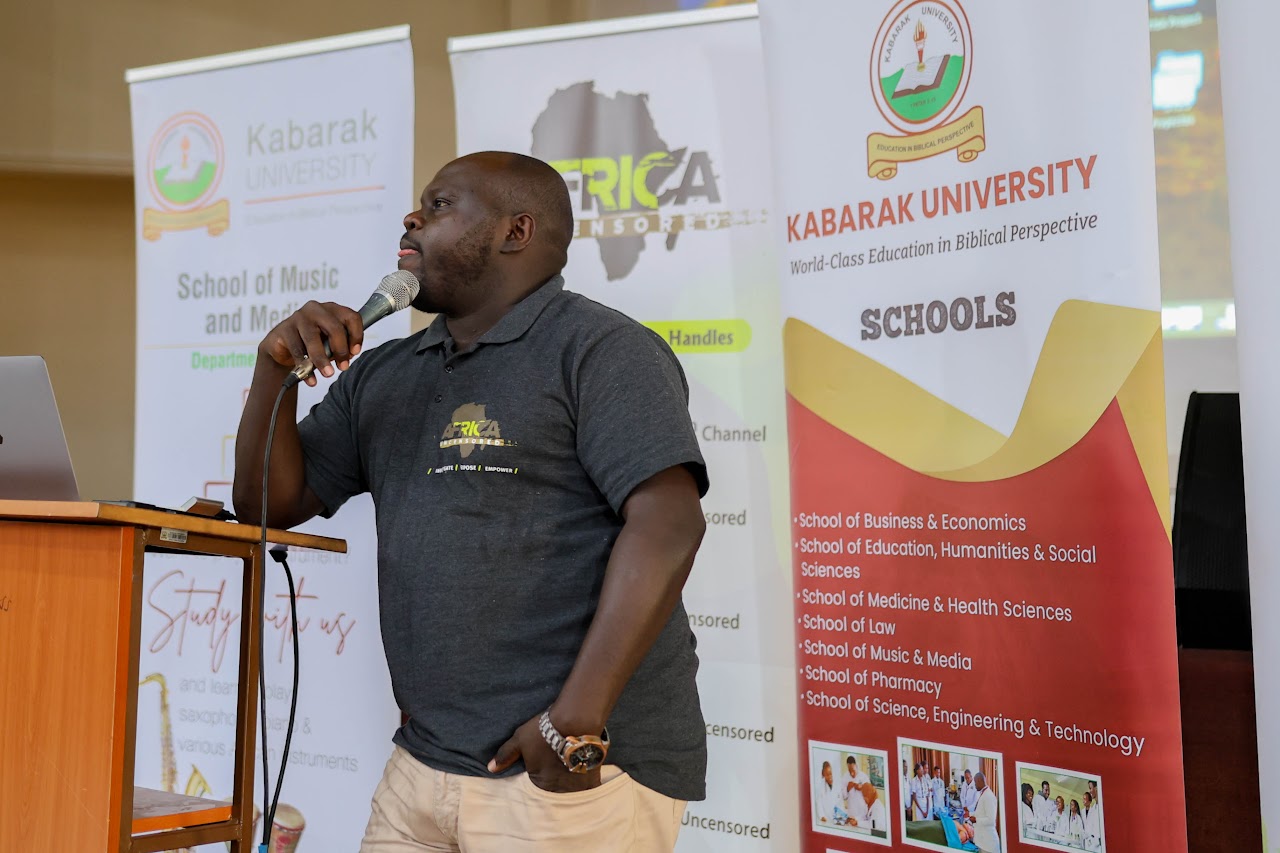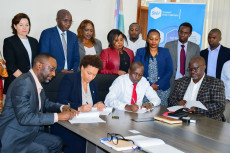- A key focus of the session was understanding the nature of false information. The trainers distinguished between misinformation, which is shared without intent to deceive, disinformation, which is intentionally false and manipulative, and malinformation, where true information is used harmfully.
Friday , November 8, 2024, marked the second day of an eye-opening Africa Uncensored Investigative Journalism training at Kabarak University. This unique program drew media students into the essential and challenging world of investigative journalism, equipping them with insights and techniques crucial to ethical and impactful reporting.
Investigative journalism stands out for its commitment to the truth, even in the face of challenges. From understanding misinformation to using covert techniques responsibly, the training highlighted skills necessary for uncovering and delivering stories that truly serve the public interest.
Distinguishing Misinformation, Disinformation, and Malinformation
A key focus of the session was understanding the nature of false information. The trainers distinguished between misinformation, which is shared without intent to deceive, disinformation, which is intentionally false and manipulative, and malinformation, where true information is used harmfully.
Read More
These distinctions are vital, as investigative journalists often encounter and need to clarify such information to maintain credibility. The session emphasized the necessity for journalists to differentiate these forms and avoid unintentionally spreading misleading narratives, which could undermine the public’s trust.
Fact-Checking and Tools for Verification
In an era of digital misinformation, verifying facts is more essential than ever. Attendees learned about fundamental fact-checking practices, from assessing source credibility to cross-referencing information and examining the context.
Practical tools like Google Lens, metadata analysis, and website verification services were introduced, providing journalists with digital aids to spot fake news and manipulated content. One example discussed was how certain URLs or overly emotional content might signal fake news, a crucial insight for journalists to filter credible sources from unreliable ones. These fact-checking skills reinforce accuracy, helping journalists to remain reliable sources of truth.
Ethical Considerations in Reporting
Ethical responsibility in investigative journalism was another significant topic covered in the training. The trainers stressed values such as accuracy over speed, bias avoidance, and transparency, particularly when corrections are necessary.
Balancing advocacy with accuracy, respecting consent and anonymity, and responsibly managing sources were underscored as non-negotiable in a journalist’s work. Ethics not only guide journalists in gathering and presenting information but also help them build trust with the public and sources, an invaluable asset in journalism.
Building the Story: The Investigative Journalist’s Approach
Investigative journalism is not just about uncovering facts; it’s about crafting a compelling narrative. Students learned that while typical news reporting answers questions like “who,” “what,” “where,” and “when,” investigative journalism takes it further.
“Why” becomes “how” the issue unfolded, “where” becomes a setting rich in context, and “what” is portrayed as a phenomenon with real consequences. The training emphasized developing a hypothesis that can be tested against gathered evidence and facts, focusing on public interest, and using creativity—sometimes involving secret filming or undercover work—to bring out hidden truths. This unique storytelling approach helps investigative journalists dive deeper into issues that impact communities.
Interviewing Techniques and Undercover Filming
Interviewing is at the heart of many investigative stories, and trainers highlighted strategies to secure crucial information from sources. Open-ended questions encourage interviewees to provide detailed responses, while active listening and building rapport foster trust.
For tougher cases, journalists may resort to ambush interviews, which, while challenging, can sometimes yield breakthrough insights. The students were also briefed on undercover filming—a tool often used to document hard-to-obtain information discreetly. However, the trainers underscored the importance of minimizing harm, embracing transparency, and understanding the legal defenses journalists can rely on, like public interest.
Risk Assessment and Safety in Journalism
The trainers did not shy away from the risks associated with investigative reporting. From physical safety to digital security, the training covered strategies to protect journalists on assignments, especially in potentially hostile environments.
Situational awareness, secure communication, and digital safety practices were emphasized as critical tools for journalists who work on sensitive stories. These insights reinforced the importance of vigilance and resilience in investigative work, which often carries personal risks but is vital to the mission of exposing the truth.
Through this engaging program, Africa Uncensored has equipped Kabarak University’s media students with valuable knowledge to navigate the complexities of investigative journalism. By focusing on ethical standards, fact-checking, storytelling, and safety, these budding journalists are now better prepared to uncover stories that resonate with the public, bringing hidden issues to light in the interest of accountability and positive change.




-1772102940-md.jpg)


-1772090413-1772095461-md.jpg)


-1772102940-sm.jpg)

